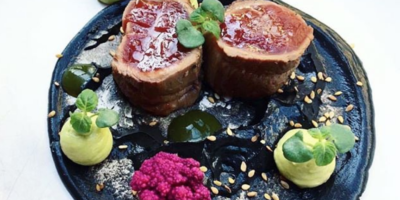Japan Revealed: 15 Things to Know Before You Visit
Step into the Land of the Rising Sun and let me immerse you in a culture delightfully different from any other. As cherry blossoms paint brush strokes across the landscape, you’ll soon discover Japan’s inimitable charms—temple bells chiming amid bamboo forests, neon cityscapes glittering below your feet from soaring skyscraper heights, and culinary treasures that tantalize every sense.
But before you book your next great adventure, arm yourself with my insider knowledge few guidebooks reveal. Let’s dive beneath the surfaces—from how to avoid embarrassing situations to cultural quirks sure to surprise—read on. I consulted savvy travel experts and the friendliest locals to bring you essential tips for preparing for your Japanese journey, one we know will exceed your highest hopes and make treasured memories for years to come.
1. Mind Your Manners: Japanese Etiquette Norms
Respect starts with a bow in Japan. Mastering the art of the bow, an angle that conveys courtesy and esteem speaks volumes in this polite culture. Beyond body language, make things easy for your hosts by remembering house rules that keep traditions alive: always remove your shoes indoors and bring a small gift when visiting someone’s home. While exceptions exist at trendy cafés or fast food joints, most true Japanese dining calls for stellar chopstick skills and refraining from overt tipsiness. Know enough etiquette to show deference and your Japanese hosts will treat you like one of their own.
2. All Aboard! Riding Japan’s Punctual Public Transit

Vlchang, CC BY-SA 4.0, via Wikimedia Commons
Japan Railways never sleeps, with meticulous metro and rail networks running like clockwork across the islands. Hop aboard with the affordability and ease of a Japan Rail Pass, available only to foreign tourists willing to plot travel plans beforehand. Subways and buses also crisscross cities, making car rental obsolete. For a truly Japanese commute, push your way onto packed rush-hour cars or stake out seats ahead of time for long-distance journeys. While adjusting to train etiquette, like keeping quiet for efficiency’s sake, rest assured you’ll reach your destination right on time thanks to Japanese punctuality.
3. Gracious Gratuity? Tipping Uncommon in Japan
Excellent, attentive service comes built-in with any Japanese experience, so much so that tipping customs ubiquitous abroad have no place here. Leaving anything beyond your bill may even induce embarrassment from hosts not wanting to appear greedy. Japan’s service industry salaries support livable wages without tips, while a cultural emphasis on omotenashi, or wholehearted hospitality, ensures guests feel cared for. Though modern etiquette allows tipping at your own discretion, outstanding experiences are simply par for the course. When in doubt, sincerely thank hosts for using carefully chosen Japanese phrases. Your courtesy will speak louder than yen.
4. Bathing Rules: Onsen Etiquette in Japan
For the ultimate Japanese relaxation ritual, head to an onsen hot spring bathhouse, then leave shoes, clothes and inhibitions at the door when entering these healing waters. But before sinking into shared baths , be sure to adhere to strict bathing etiquette starting with a thorough cleansing shower beforehand.
Mind signs denoting gender-specific pools or instructions to cover tattoos, which hold an unfavorable stigma. Inside baths, keep conversation low-key and bodily contact nil. Understanding onsen norms grants you more tranquil soaks, helping harness natural spring’s rejuvenating minerals. Just follow savvy locals’ lead by entering baths slowly and avoiding overindulgence in the heat. Relaxation Japanese-style means peacefully basking in it all.
5. Feel Japan’s Seasonal Spirit
Japan revels in the fleeting beauty of each passing season, so visiting during various times of the year offers dramatic scenery shifts. Spring dazzles with delicate pink sakura cherry blossoms, while summer unleashes hot humidity and lively matsuri festivals. Come autumn, follow fall foliage chasing crimson maple leaves spreading across landscapes.
By winter months traditional cuisine featuring nabe hot pots perfectly complements stark silhouettes of snow-capped Mount Fuji views. Whenever visiting, observe seasonal customs adding flair, like sipping a cold beer in summer or warming up with matcha green tea in cooler climes. Plan your travel calendar according to weather patterns, packing layers accordingly. Then embrace Japan’s unique four seasonal personalities.
6. No Shoes Inside: A Universal Japanese Custom

National Museum of Denmark from Denmark, No restrictions, via Wikimedia Commons
At home and abroad, removing outdoor footwear indoors keeps spaces immaculately clean for all. But in Japan shoeless interiors reach a whole new level as a widespread cultural custom in private homes, traditional inns, select businesses and sacred spots. Leave shoes in designated genkan entryways or locker storage then switch to slippers while inside.
Keeping outdoor dirt locked out maintains cleanliness, especially when sitting on tatami straw mat floors or futon beds. While shrines and temples may lend shoe covers, some ban footwear altogether as a sign of respect. Going barefoot or stocking-clad takes some adjusting for visitors, but embracing this ubiquitous practice grants you insider access in Japan. So come inside, stay awhile and relax shoeless.
7. Litter-Free Travels: Japan’s Trash Rules

Image by Marcellinus Jerricho from Pixabay
Wandering Japan’s meticulously clean streets, you’d be hard-pressed to find public garbage cans dotting the landscape. Yet litter remains curiously absent thanks to a cultural emphasis on responsible waste management. Without ready receptacles, trained residents simply take trash with them until reaching some sorting venue or station convenience store suited for disposal.
Visitors should adopt similar practices while traveling, holding onto snack wrappers, bottled beverages and various debris in bags until locating an appropriate dump spot. With few wastebaskets around, you may have to personally port litter longer distances before trashing properly, but following Japan’s low-impact lead protects the environment and community. It’s a small effort toward maintaining public cleanliness from the ground up.
8. Tread Lightly: Respecting Japan’s Natural Beauty

Image by Armin Forster from Pixabay
Crisp mountain ranges. Verdant bamboo forests. Coral reef seascapes. Japan’s exquisite natural attributes inspire exploration and awe unless visitors neglect treasuring its diverse environmental riches. Put principles of sustainability first by staying on marked paths, leaving no trace, and strictly obeying posted rules in national parks or protected areas.
Research responsible operators offering ecotourism boating, hiking and cycling. From cherry blossom picnics to hot spring soaks, either forgo disposable goods or pack out what you pack in. Mind your ecological footprint through mindful consumption, minimal waste and keeping nature pristine.
9. Here you have to Adhere to the Art of Queueing
Japanese people have perfected the art of orderly queuing, known as “lining up,” with queue disciplines that must be observed. Whether waiting for public transport, entering restaurants, or visiting temples, be prepared to patiently wait your turn. Avoid cutting in line, as it’s considered extremely rude.
The queue culture highlights values like respect, restraint, and interdependence with others. Though queues may seem long by American standards, not to worry – they usually move efficiently. So embrace the queue as part of experiencing Japanese culture first-hand. You’ll find yourself catching the queueing bug!
10. Always Mind Your Surroundings
Follow the unwritten rules of street etiquette to avoid embarrassment while out and about. As a courtesy to others, refrain from talking loudly on cell phones or FaceTime. Be aware of maintaining personal space in crowded subway cars or walkways, and avoiding unnecessary contact with others.
When walking down busy streets, be mindful of avoiding sudden stops so those behind can navigate smoothly. Signs, symbols, and songs inform patrons when to enter and exit trains without spoken instruction. Minding these subtle societal cues will help you blend right in to properly navigating Japanese streets and public places.
11. Japan is the Land of Vending Ventures
Vending machines in Japan dispense far more than just sodas and candy. You’ll spot vending machines on nearly every street corner, selling everything from hot meals to batteries to sake! Called “jidomaten,” locals rely heavily on the 200,000+ vending machines nationwide for 24/7 availability of both mundane and exotic goods.
Embrace the adventure by sampling unique Japanese Kit-Kat flavors, hot noodle bowls, or mysterious oddities. But don’t get too distracted! Keep an eye out while passing by. With creative contraptions continuing to emerge, automated vendors ensure you’ll never know what you may find.
12. Japans is Your Gateway to Festival Frenzy

Syced, CC0, via Wikimedia Commons
Throughout the year diverse cultural festivals showcase historic traditions. From large-scale matsuri attracting over a million attendees to small countryside rituals passed down generations, each event reveals insights into the Japanese lifestyle. Put on your dancing shoes for bon odori summer folk dances! Don vibrant yukata summer kimonos for firework shows on riverbanks!
Try tantalizing street food like kakigōri shaved ice as taiko drum beats amp up the energy. Or simply observe as ornate mikoshi shrines parade proudly by. By experiencing hands-on festivities alongside locals, embrace the spirit of community bonding intrinsic to Japan. From the first omikoshi hoist to the last festival shout, you’ll create memories to last a lifetime!
13. Stay Connected While Traveling Across Japan
With Tokyo rated among the world’s most crowded city, reliable internet is essential for navigating busy urban jungles. While Japan offers the fastest average Wi-Fi speeds globally, free public wireless networks remain limited outside major stations. Purchase portable Wi-Fi devices ensuring connectivity across bullet train routes. Alternatively, temporary visitor SIM cards can provide affordable data during your stay. Review access maps before departing since coverage varies by provider.
With devices offering lifelines to translation apps, maps, and train timetables, staying connected prevents disorientation. So rather than roaming lost in Shibuya Scramble’s sea of people, embrace Japan’s tech spirit. Use your gadget sidekick to enhance navigating lesser-known destinations confidently.
14. Japan is for the Adventurous Appetites
Japanese cuisine’s international fame stems from boldly innovative takes on traditional dishes like sushi, ramen, and tempura. Yet each of Japan’s 47 prefectures boasts signature specialties drawing from local sources and customs. Broaden your palate by sampling range across well-known staples to rare regional fare.
Slurp thick, rich Hokkaido miso ramen, then cleanse with refreshing Shikoku yuzu. Seek out Tokyo’s top-rated Edomae sushi before visiting Shizuoka’s wasabi farms. From tasting Japan’s $200 melons to grilling Hiroshima’s okonomiyaki savory pancakes, rewarding culinary adventures await those with daring appetites!
15. You may Have to Cover up you Tattoos in some Places
Japan’s long history of tattoos carries complex cultural symbolism, considered taboo across some travel experiences. Public bathhouses and hot springs often restrict entry to individuals bearing visible tattoos due to lingering associations with counterculture groups. While rules relax across some contemporary spaces, reviewing policies helps avoid uncomfortable refusal.
Check Ryokan Inn listings when reserving lodging containing on-site therapeutic springs. For visiting temples, cover up tattoos by wearing long sleeves and pants despite warm conditions. Research tour policies around experiences like communal sand bathing in Kagoshima’s hot sand pits. While the art form gains appreciation through media, ensuring appropriate cultural sensitivity remains key for smoothing travel.
With these tips go ahead and explore the busy streets of Tokyo, filled with cool gadgets, and discover the calmness of old shrines in Kyoto. Dive into the lively scene of Japanese life and enjoy tasty food like sushi and ramen. Get ready to be amazed by the skillful Geishas and the stunning views of Mount Fuji. Japan is a place where history speaks through ancient stones, and it welcomes you to appreciate its unique beauty—a journey that goes beyond the usual, marked by its rich heritage.
Planning a trip to Paris ? Get ready !
These are Amazon’s best-selling travel products that you may need for coming to Paris.
Bookstore
- The best travel book : Rick Steves – Paris 2023 – Learn more here
- Fodor’s Paris 2024 – Learn more here
Travel Gear
- Venture Pal Lightweight Backpack – Learn more here
- Samsonite Winfield 2 28″ Luggage – Learn more here
- Swig Savvy’s Stainless Steel Insulated Water Bottle – Learn more here
Check Amazon’s best-seller list for the most popular travel accessories. We sometimes read this list just to find out what new travel products people are buying.













